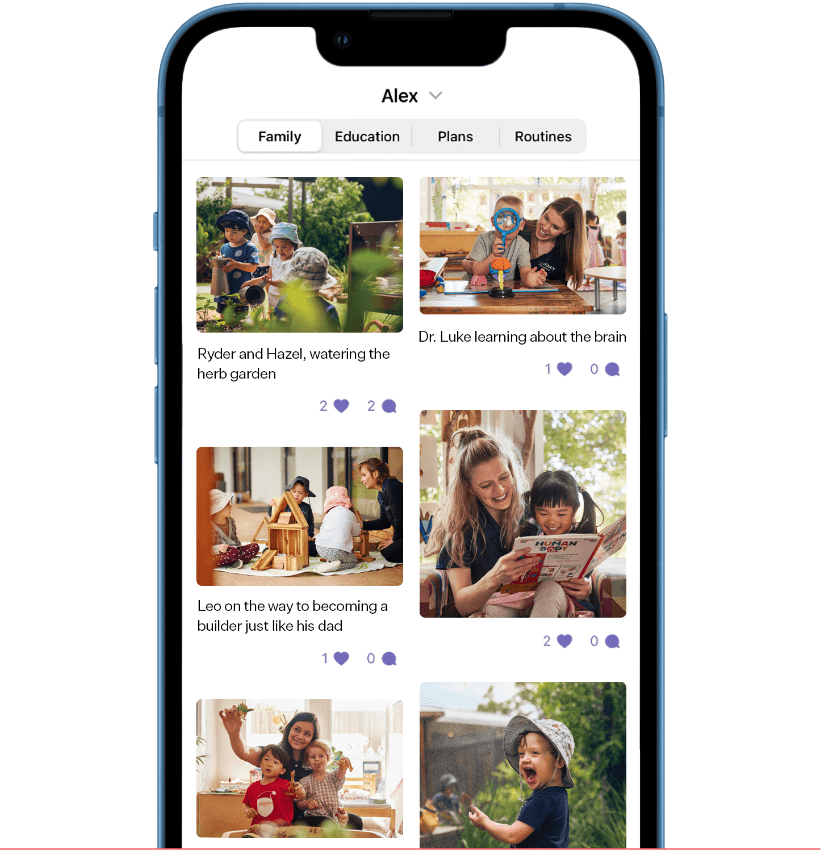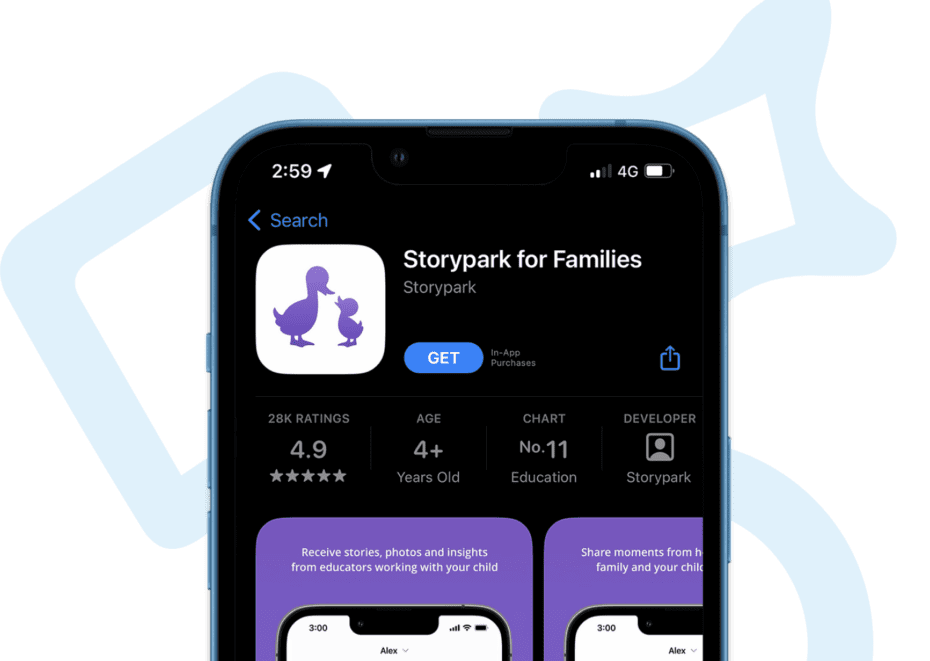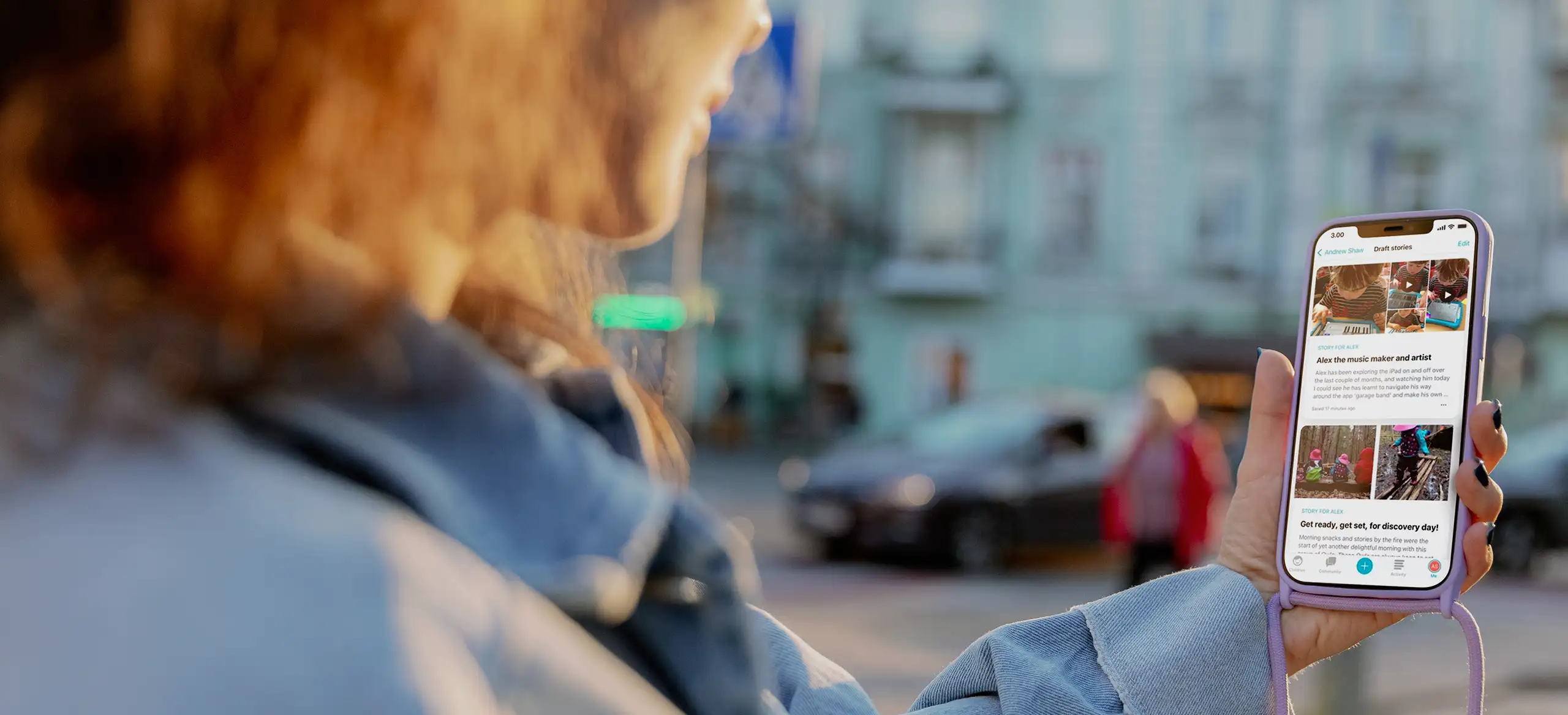

The Storypark App
Placing your child at the centre of everything we do with Storypark.
We use Storypark to record and communicate your child’s learnings. By sharing photos, video, audio, observations and routines, we give you the opportunity to see, hear, comment on and share your child’s development.
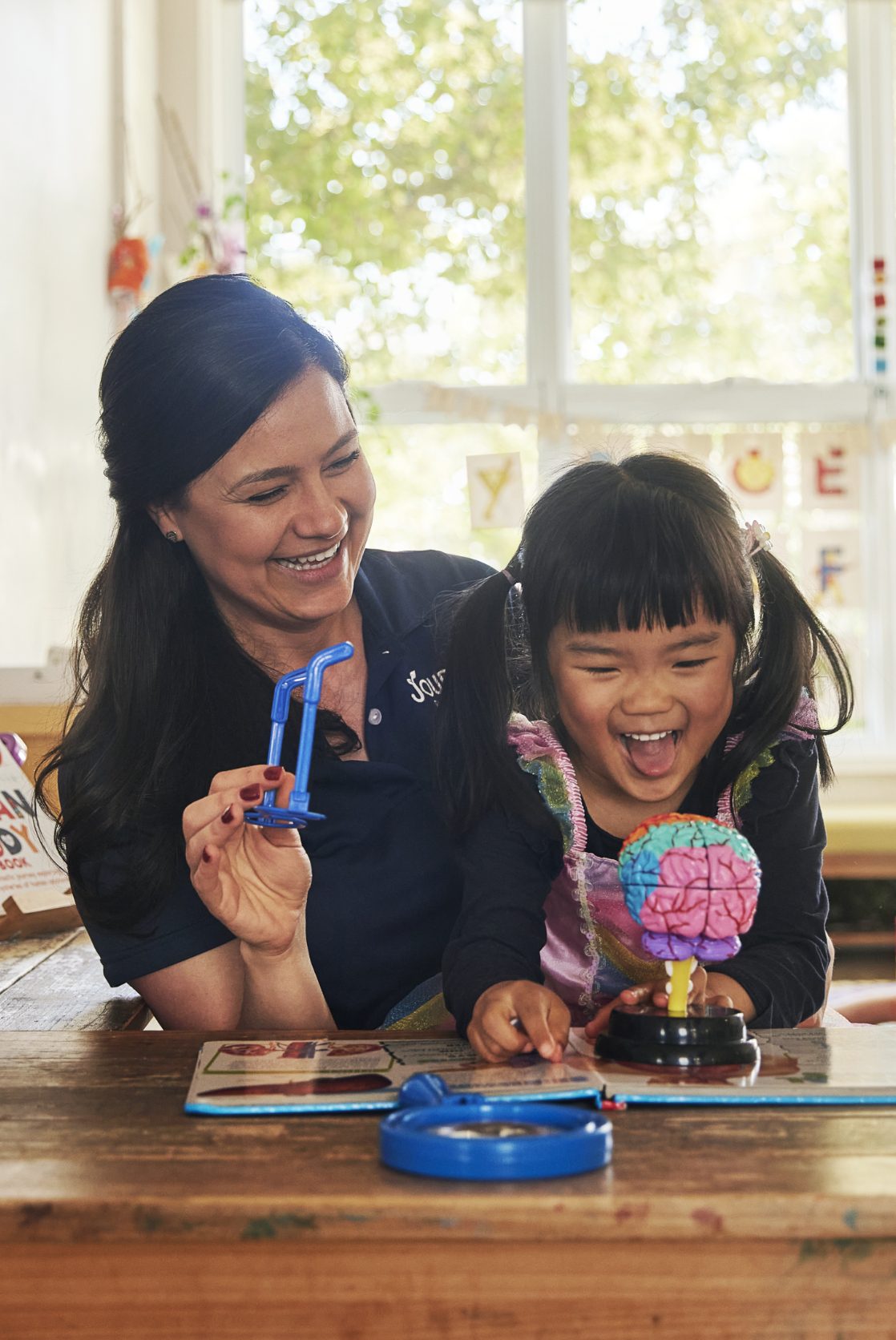

What is Storypark?
Storypark is an innovative online platform that offers numerous benefits. It allows you to stay connected and engaged in your child’s learning and development, receive updates and insights on your child’s progress, and easily communicate with your child’s educators. Additionally, it provides you with access to a wide range of resources and support, enabling you to enhance your parenting skills and better support your child’s growth and learning.
What do we use Storypark for?
With Storypark, you can also share photos, videos, and messages with your child’s caregivers, providing a secure and collaborative space to build meaningful relationships.


Benefits of Storypark
- Receive updates on your child’s learning and development
- A secure and collaborative platform for you to communicate with your child’s educators
- Access to a wide range of parenting resources and helpful support materials
- Storypark allows you to stay connected and engaged in your child’s education
- Provides opportunities for feedback and input on your child’s progress
Storypark Features
By providing opportunities for feedback and input on your child’s progress, Storypark enables you to play an active role in your child’s learning journey, which can help them reach their full potential and succeed in school and beyond.
You can collaborate with your child’s caregivers to share ideas and insights on your child’s learning.
You can use Storypark to stay up-to-date on your child’s daily routines, such as their nap times, meal times and diaper changes.
With Storypark, you can communicate directly with your child’s teacher and ask any questions you may have.
Storypark is easy to use and can be accessed on any device, including smartphones, tablets, and computers.
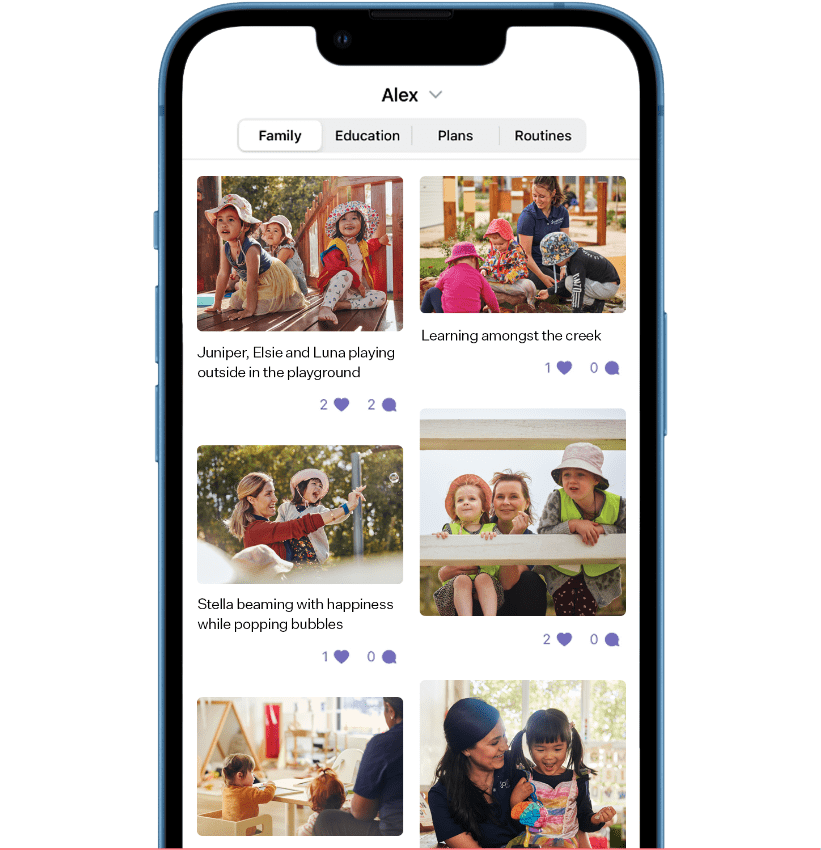

Focused on positive outcomes for your child
- Individual voices, interests, strengths and abilities are more easily recognised and supported.
- Greater emotional support – stronger trust and attachment, important during transitions.
- Extended awareness of community, relationships and place in the world.
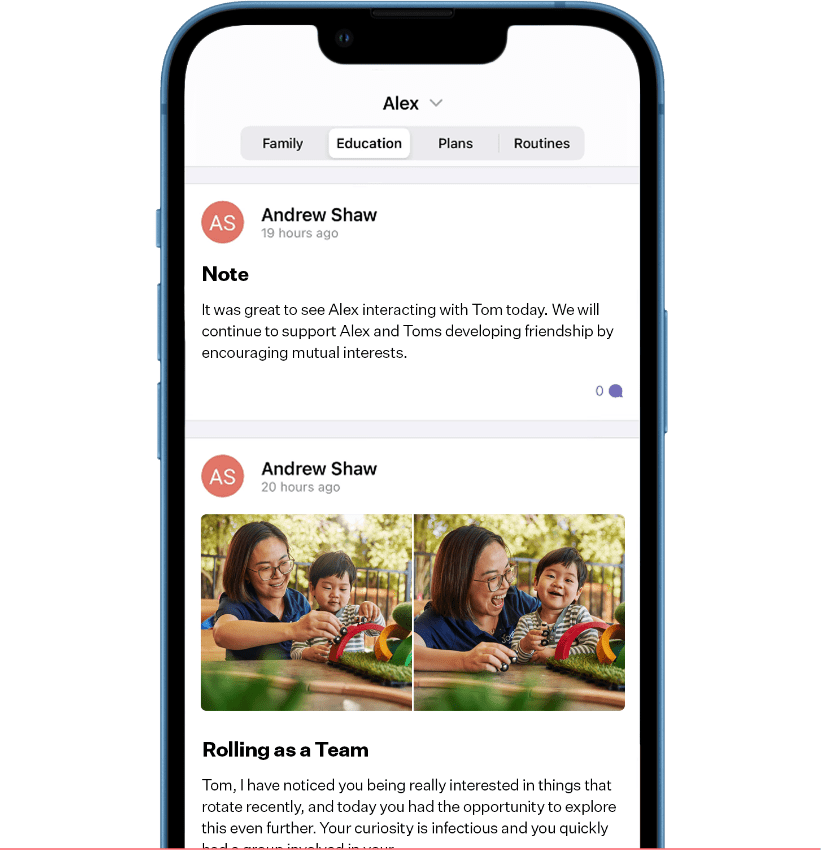

Never miss a magical moment
With Storypark, educators can share updates on your child’s learning and development through photos, videos, and written stories. You can see what activities your child is participating in and how they are progressing.
